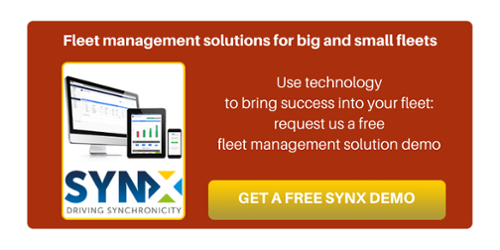
Being connected is now an option for almost everything and technology plays a major part of our everyday lives, not only when it comes to work but also when carrying out simple tasks such as ordering a meal, paying for a service or booking your holidays. The automotive industry is no exception to this modern trend, and fleet managers should understand that remarkable changes caused by rapid shifts in automation technology are happening sooner rather than later.
Autonomous and IoT (Internet of Things) connected vehicles have been the subject of intense research in recent times, with experts scrutinising sensors, circuits, communication possibilities as well as vehicle control systems, software, artificial intelligence and data collection. While autonomous vehicles, also known as driverless vehicles or self-driving vehicles, are literally capable of sensing their environment and moving without human input, connected vehicles are equipped with integrated systems able to connect to a network like a cloud system, to other vehicles or devices and infrastructure by means of an Internet connection.
When thinking about self-driving cars, people imagine a future in which they get a new vehicle with a button that once pressed takes them wherever they want to go, but the impact of autonomous vehicles is going to be much broader than that. There will be roads exclusively for self-driving vehicles which will be host to a new vehicle category different from the existing ones and might change the way we are used to seeing things, with remote operators rather than drivers as such who manage the vehicles safely and efficiently. From this perspective, it’s reasonable to suggest that fleet tracking is certainly not going to diminish in importance. Arguably, it will be more vital when there is no human driver at the steering wheel.
What is probably happening faster—and is already a reality—is the growth of connected cars. It has been estimated that around 381 million connected cars will be on the road by the year 2020; and in the US alone, fleet vehicles employing connected car technology will reach 12.7 million units by the same year, 2020.
Some of the benefits of connected car technology for fleets are already evident, even if IoT systems and artificial intelligence is not yet widespread. Connected vehicles technology might in the future allow fleet managers to monitor nearly every aspect of the vehicle operation in real time, from speed to location and route travel, to fuel usage if this applies, from driver distraction to global efficiency and safety. IoT permits such parameters (and probably many more) to be measured and their data transmitted.
The global ecosystem is changing rapidly into a more complex environment, and the shift to what are known as ‘ACES’ fleets (autonomous, connected, electric, shareable) will require the appropriate expert management and research. IoT, artificial intelligence, big data, and connected car technology have already demonstrated they have the power to revolutionize the fleet management industry. We know the potential of this and are working towards the future thanks to the help of our dedicated research team. If you are looking for a reliable partner for your IoT connected vehicles project or automotive OEM, why not contact us today...



